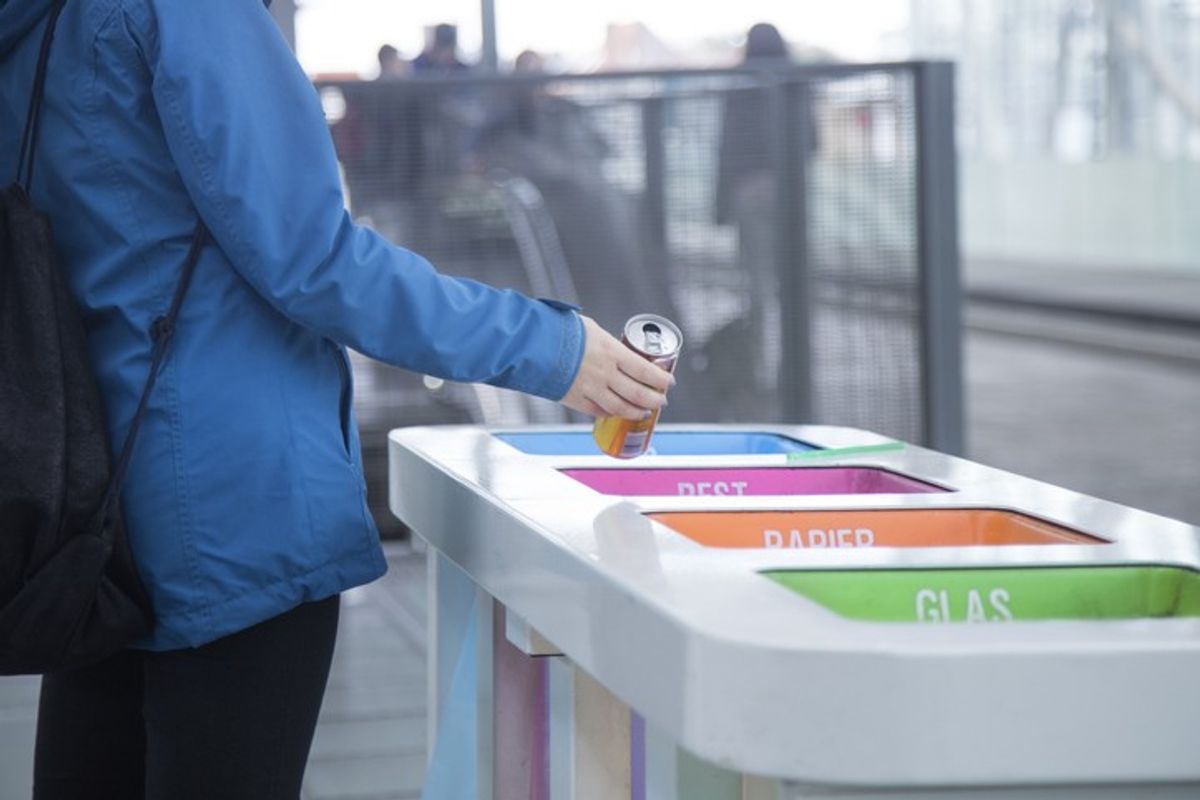With just 70 days left to go until the government’s new Simpler Recycling reforms are implemented, most businesses are not prepared for the changes in the rule, claims a leading business waste management service.
Although the UK's overall recycling rate has seen a significant rise, reaching 44 per cent in 2015 compared to just 17 per cent in 2008, progress has plateaued in recent years, with indications that the rate may now be declining.
Department for Environment, Food & Rural Affairs (DEFRA) new initiative Simpler Recycling reform aims to simplify recycling processes, reduce landfill waste, and tackle illegal waste activities, creating a more sustainable and environmentally conscious society through improved recycling efforts.
According to the Simpler Recycling reform mandate released by DEFRA, by 31 March 2025, businesses and relevant non-domestic premises in England will need to arrange for the collection of the core recyclable waste streams, with the exception of garden waste (glass, metal, plastic, paper and card, and food waste).
The new Simpler Recycling rules affect any business with 10 or more full-time employees. The rules apply to businesses regardless of how many employees are on-site at once.
For example, if you have two locations with five full-time employees at each, you must still comply with the Simpler Recycling regulations, as you’ll have 10 employees in total.
Businesses that fit under this category must arrange separate collections of food waste, paper and cardboard (can be combined), and other dry recycling (glass, plastic, and metals, which can be combined).
It means businesses can no longer throw any of these materials away with general waste.
Micro-firms (businesses with fewer than 10 full-time equivalent employees) will be temporarily exempt from this requirement. They will have until 31 March 2027 to arrange for recycling of core recyclable waste streams.
The new default requirement for most households and workplaces will be four waste containers (including bags, bins or stackable boxes) for:
- residual (non-recyclable) waste
- food waste (mixed with garden waste if appropriate)
- paper and card
- all other dry recyclable materials (plastic, metal and glass)
This is the government’s maximum default requirement and is not expected to increase in the future. However, councils and other waste collectors will still have the flexibility to make the best choices to suit local need, DEFRA states.
"Alongside Extended Producer Responsibility for packaging and the Deposit Return Scheme for drinks containers, Simpler Recycling will make a significant step towards meeting our ambition to recycle 65 per cent of municipal waste by 2035, and deliver greenhouse gas emissions savings equivalent to £11.8 billion," DEFRA states.
Using commercial waste collection services and licensed waste carriers should ensure compliance with the new plans.
Businesses can use separate bins for each recycling stream or use dry mixed recycling bins to combine plastic and metals for ease (such as food packaging). Paper and card must be collected separately from other dry recyclables.
What can businesses do to transition and keep costs low?
Business Waste sent out communications to over 15,000 customers to make them aware of Defra's new Simpler Recycling reforms and response data suggests only 1 per cent are aware of the new laws.
Mark Hall, waste management expert at Business Waste, shares his thoughts, “It’s a big win for the environment and it aligns well with the government’s sustainability goals.
"We’re geared up to help businesses comply with these regulations, ensuring a smoother transition to greener waste management practices.
"It’s important to implement any changes your business needs in plenty of time. This way you’ll be able to spot and fix any teething issues as they arise, and before the rules are enforced.
"A great place to start is to conduct a waste audit to understand how much waste your business produces, what types of waste you generate, and what bins and collections you need. Business Waste offers a free waste management audit that can help.
"Following on from this, you can then look to create a waste management plan that will help ensure your business manages its commercial waste safely, appropriately, and efficiently.
"All staff must understand the new laws and what changes are being made in the business to follow these. Educate staff about the waste you generate and its impact on the environment, so they understand the reasons behind the changes.
"Set clear guidance to follow and provide instructions or labelling that helps staff segregate and dispose of waste correctly.
"Reducing waste is cheaper and better for the environment than removing it. Look for ways your business could reduce its waste at the source. Rethink packaging, switch from single-use products to reusable options, or evaluate your inventory management.
"A waste broker can help you understand your waste needs, arrange any collection and disposal services, and work with their suppliers to find you the best price.
"Using a waste broker should ensure you meet all the requirements of Simpler Recycling and removes a lot of the admin and time spent arranging waste collection.
"Business Waste can also help companies with their transition to the new rules by providing millions of free bins to customers. There are no delivery fees or hire charges, you only pay for the collection costs.
"Any business using our services can access a wide range of free bins to separate their waste."


